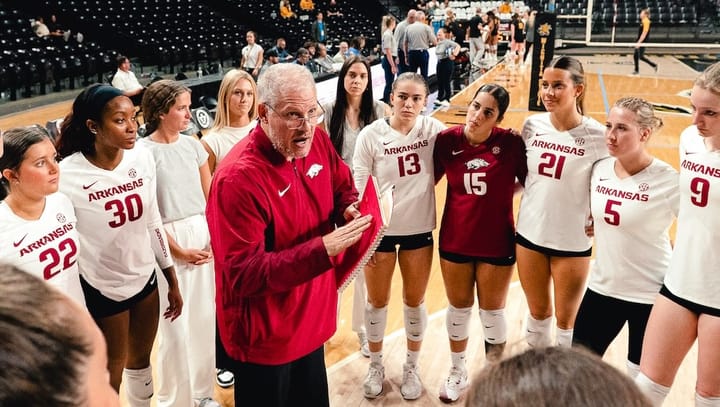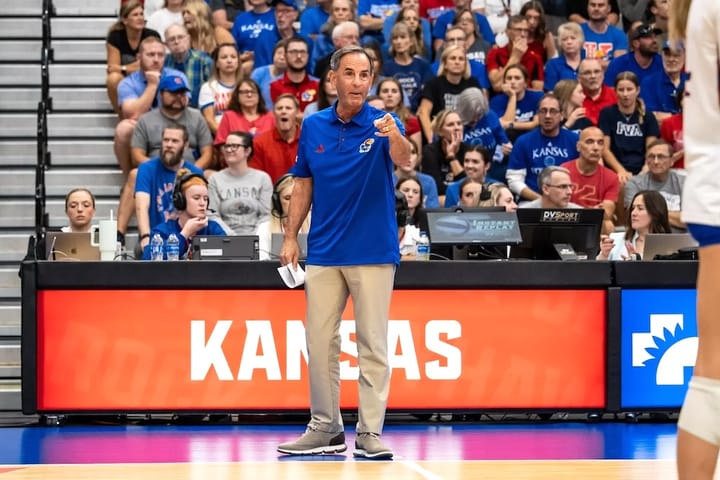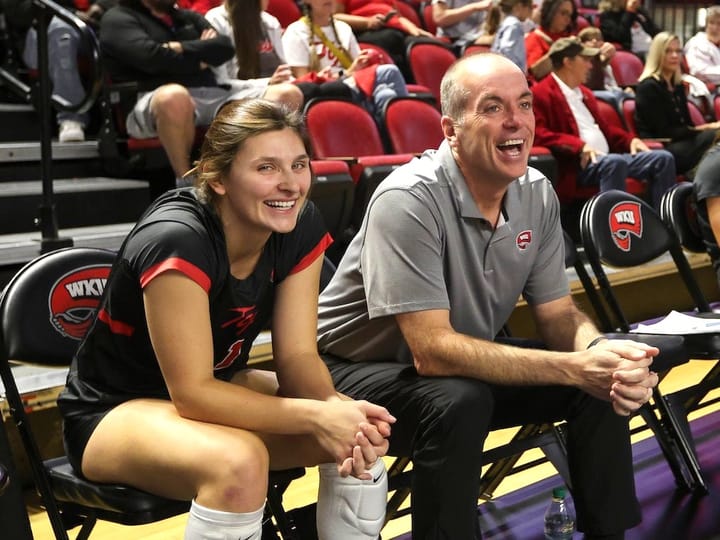88. Sanja Tomasevic: Give back to move forward.
Sanja Tomasevic has experienced volleyball from every angle—student-athlete, professional player, college coach, and now assistant coach for Vakifbank, one of the world’s top volleyball teams.
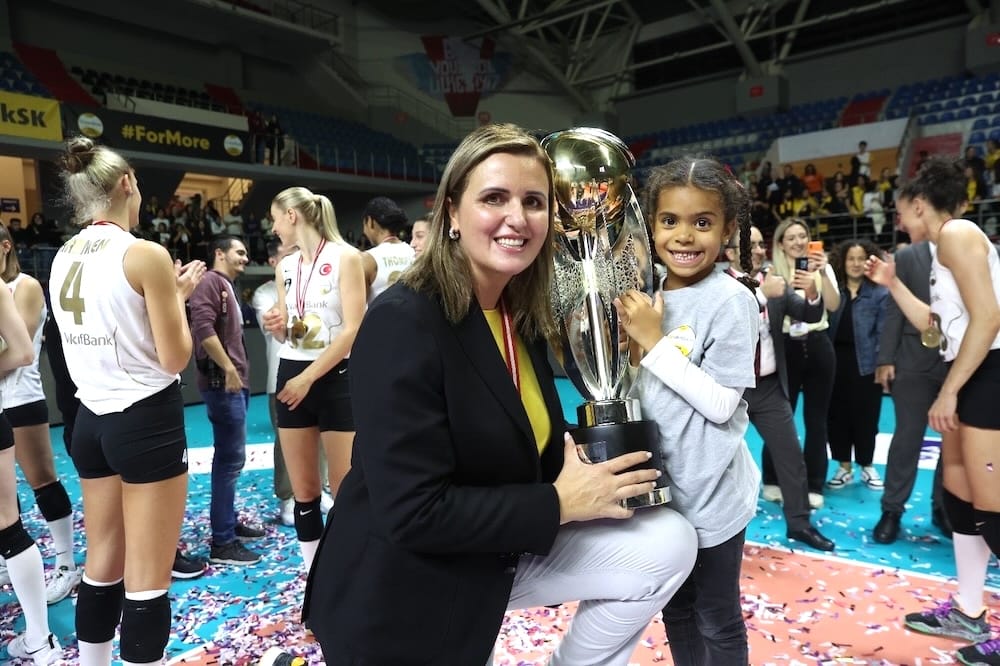
As a player, Sanja was a standout at the University of Washington, leading the Huskies to four NCAA tournament appearances, including the 2005 NCAA National Championship, while earning multiple All-American honors. Her professional playing career spanned Europe and Asia, where she showcased her skills on the international stage.
Transitioning to coaching, Sanja held assistant coaching roles at the University of Miami, UTSA and served as head coach at Arizona State University (2017–2022). Now, she is an assistant coach at Vakifbank Spor Kulubu, one of the world's most prestigious pro club teams.
What makes Sanja truly remarkable is the breadth of her experiences. Few people in volleyball have seen the sport through so many lenses—from playing at the highest levels to coaching in both collegiate and professional settings.
This makes her a uniquely valuable voice, offering insights that cover every aspect of the game.
Key takeaways from this article include:
- The power of listening as a cornerstone of effective coaching.
- Why staying stuck in outdated methods hinders progress.
- Strategies for continuous learning and using time effectively.
- Team management with individual autonomy through team values.
- The place that passion has in a demanding profession.
- The role of connection and respect in team environments.
- Insights into modern volleyball rules and their impact on the game.
- Finding balance and purpose as an athlete and a coach.
We have 55 minutes of video interview with coach Tomasevic in this article. Enjoy!
Enter Sanja...
Sanja, what advice would you give yourself as a starting coach? An advice that is so clear and logic for you now, but that you had to develop over the years.
A big thing for me would be listen, listen, listen. As coaches, we learn a lot along the way - whether it's in the classroom, through volleyball experience, or whatnot. When we see a blank canvas or someone young who wants to learn, we tend to want to talk a lot.
But we can actually learn so much more by listening - listening to our team, to our players as individuals.
I can only speak to coaching women's teams since I've never coached men's teams. But with women, it's all about connection. If a player feels like we can connect, they're more likely to work hard and follow through on everything you say.
Many times we jump straight to "do this, do this, do this," rather than taking the time to get to know and learn about them first. So my advice would be: listen, listen and learn about your team and your players before you start teaching volleyball.
What's a common mistake you see volleyball coaches still making today?
Being stuck in the past is a major pitfall - whether it's being stuck with a team that worked before, stuck in the year that worked for you, or stuck in certain ways of doing things mentally or physically. The game has improved tremendously.
Players are taller, faster, jumping higher, and hitting harder. The game has changed so much, and we need to be flexible and continue to educate ourselves so we can translate this knowledge to our players on the court. If we still teach volleyball the way it was taught when I started in the 90s, we're in big trouble. I mean, in the 90s, we didn't even have Google!
Now we have access to all this data and technology. Every day there's something new coming out - tools to speed up reaction time, enhance this or that. With VR and everything else that's developing, there's no reason for us to be stuck in the past. We need to keep learning and educating ourselves so we can be the best we can be for our athletes.
How do you go about continuously learning? Is it being in contact with people in different kind of leagues, on different kinds of levels. How do you personally do that?
First of all, let me share my background. After finishing my coaching role at Arizona State University, I had about six months to explore what I wanted to do next. During that time, I got certified as a sports life coach. While the concepts I learned weren't exactly revolutionary, they made me think about things in ways I never had before.
One of the key concepts we learned was about "24 golden nuggets" – referring to the 24 hours we get each day. Let's say you spend eight of those sleeping (though parents might disagree with getting that much sleep!). Even then, you still have plenty of hours left to accomplish what you need to do.
It's all about prioritizing within those 24 hours and finding where everything fits. Now, if I told you I dedicate two hours every day to learning, I'd be lying. But I can commit to learning for an hour or two every other day. And if I miss a day, I don't beat myself up about it – I just get back to it.
How do I keep learning? I stay connected with my peers. We have this understanding where we don't expect immediate responses from each other, but we'll share podcasts or interesting content with messages like, "Hey, check this out." It doesn't need to turn into a full conversation – it's more like saying, "I'm thinking about you, here's something interesting." We both understand we're busy, and that's okay.
You can also just Google whatever's on your mind. Think about what's the topic of the week, usually something your team is dealing with at the time. Is your team struggling with crossover steps and blocking? Having trouble with reading? You can find plenty of videos about these topics online. The resources are endless. We just need to prioritize our time.
That's really the big takeaway – those 24 golden nuggets and how we use them.
Sure, you might spend some time scrolling through TikTok as a pastime occasionally, but is that making you a better coach? Probably not.
It's important for our athletes to understand this too. Each day isn't the end of the journey – it's just the end of that day. Tomorrow starts fresh with new opportunities and new 24 golden nuggets to invest in. Instead of saying "this whole week" or "this whole month has been bad," we should ask ourselves: Why has it been challenging? What can we change about it?
What's your philosophy on team rules as a coach?
From my journey as a player to assistant coach and then head coach, I've learned something interesting about rules. Often, rules exist simply because someone thought "we should have a rule for this" – and it makes you wonder about their purpose. Sometimes these rules turn coaches into full-time police officers, constantly controlling and checking.
This takes a lot of time and energy, with little to no benefit. If anything, it just creates a divide between coaches and players.
When I coached at the university level, having rules was mandatory – probably for legal reasons or something similar. When you have to create rules, you create them; it is what it is. But most rules are really just common sense. I would give players the rule book and tell them, "You should probably read this because you need to sign it, but here's the summary: Consider what you're here for, which is schol and volleyball. If what you're planning to do doesn't align with that purpose, don't do it."
Meaning, if it's going to negatively impact these two things,don't do it. But if you can maintain a high level in both areas, you can do whatever you want.
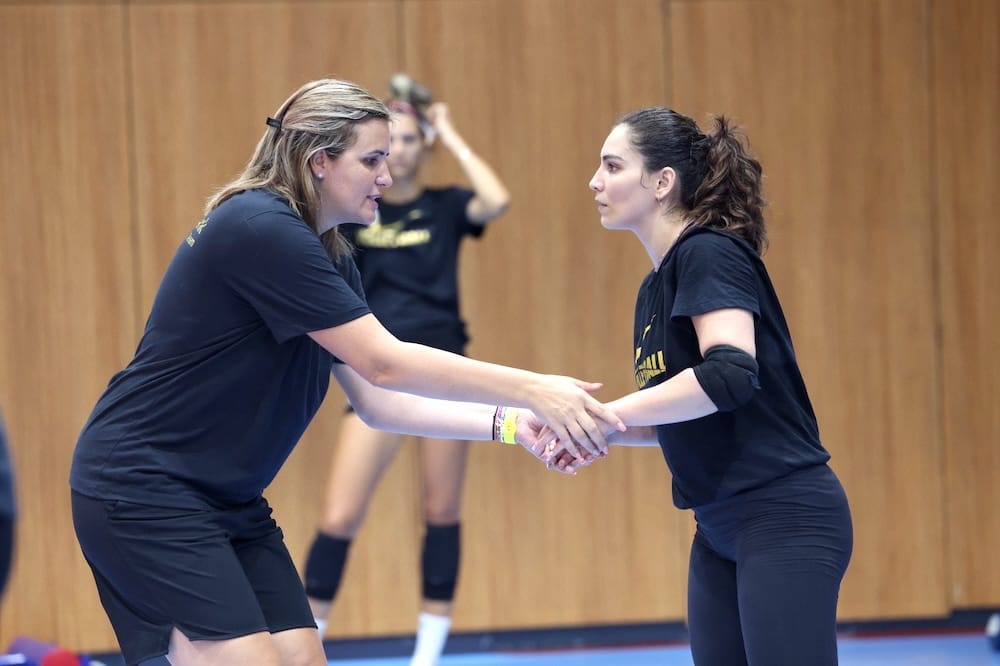
You're an individual, a human being, and you should do whatever fills up your tank at the end of the day. That's how I feel about rules.
However, I believe values and behaviors are more important and need to be established and discussed.
In college, that's something we talk about during the recruiting process. In professional sports, like here at Vakifbank, Giovanni discusses our values and behaviors with the team on day one. When everyone arrives from their national teams with different schedules, it's the first conversation we have – and it has nothing to do with volleyball.
It's about who we are as people, how we treat others around us, and what kind of effort we expect to give to this season and team.
These things are non-negotiable. For example, when we leave the gym, we must leave it pristine – better than when we came in. If someone left an empty water bottle in the gym before we arrived, we clean that up, and then we make sure there's no trash left behind us when we leave. These little things really add up.
